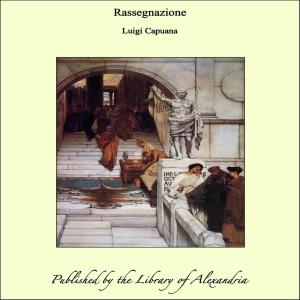The Silent Watchers: England's Navy during the Great War: What It Is, and What We Owe to It
Nonfiction, Religion & Spirituality, New Age, History, Fiction & Literature| Author: | Bennet Copplestone | ISBN: | 9781465616685 |
| Publisher: | Library of Alexandria | Publication: | March 8, 2015 |
| Imprint: | Language: | English |
| Author: | Bennet Copplestone |
| ISBN: | 9781465616685 |
| Publisher: | Library of Alexandria |
| Publication: | March 8, 2015 |
| Imprint: | |
| Language: | English |
My boyhood was spent in Devon, the land of Drake and the home of the Elizabethan Navy. A deep passion for the Sea Service is in my blood, though, owing to family circumstances, I was not able to indulge my earliest ambition to become myself one of the band of brothers who serve under the White Ensign. My elder brother lived and died afloat. Two of my sons, happier than their father, are privileged to play their parts in the great ships of the Fleets. So that, though not in the Service, I am of it, by ties of blood and by ties of the earliest association. Whenever I have sought to penetrate its mysteries and to interpret them to my fellow countrymen, my motive has never been that of mere idle curiosity. The Royal Navy wields, and has always wielded, a great material force, but the secret of its strength lies not in the machines with which it has equipped itself in the various stages of its development. Vast and terrible as are the ships and the guns, they would be of little worth if their design and skilful employment were not inspired by that spiritual force, compounded of tradition, training, devotion and discipline, which I call the Soul of the Navy. In the design of its weapons, in its mastery of their use, above all in its consummate seamanship, the Royal Navy has in all ages surpassed its opponents; but it has done these things not through some fortuitous gift of the Sea Gods, but because of the never-failing development of its own spirit. It has always been at a great price, in the sacrifice of ease and in the outpouring of the lives of men, that the Navy has won for itself and for us the freedom of the seas. Those who reckon navies in ships and guns, in weight of metal and in broadside fire, while leaving out of account the spirit and training and devotion of the men, can never understand the Soul of the Navy. For all these material things are the expression of the Soul; they are not the Soul itself. The Navy is still the old English Navy of the southern maritime counties of England. It has become the Navy of Great Britain, the Navy of the British Empire, but in spirit, and to a large extent in hereditary personnel, it remains the English Navy of the Narrow Seas. Many counties play a great part in its equipment, but to me it is always the Navy of my own land of Devon; officers and men are the lineal successors of those bold West Country seamen who in their frail barks ranged the wide seas hundreds of years ago and first taught to us and to the world the meaning of the expression “sea communications.”
My boyhood was spent in Devon, the land of Drake and the home of the Elizabethan Navy. A deep passion for the Sea Service is in my blood, though, owing to family circumstances, I was not able to indulge my earliest ambition to become myself one of the band of brothers who serve under the White Ensign. My elder brother lived and died afloat. Two of my sons, happier than their father, are privileged to play their parts in the great ships of the Fleets. So that, though not in the Service, I am of it, by ties of blood and by ties of the earliest association. Whenever I have sought to penetrate its mysteries and to interpret them to my fellow countrymen, my motive has never been that of mere idle curiosity. The Royal Navy wields, and has always wielded, a great material force, but the secret of its strength lies not in the machines with which it has equipped itself in the various stages of its development. Vast and terrible as are the ships and the guns, they would be of little worth if their design and skilful employment were not inspired by that spiritual force, compounded of tradition, training, devotion and discipline, which I call the Soul of the Navy. In the design of its weapons, in its mastery of their use, above all in its consummate seamanship, the Royal Navy has in all ages surpassed its opponents; but it has done these things not through some fortuitous gift of the Sea Gods, but because of the never-failing development of its own spirit. It has always been at a great price, in the sacrifice of ease and in the outpouring of the lives of men, that the Navy has won for itself and for us the freedom of the seas. Those who reckon navies in ships and guns, in weight of metal and in broadside fire, while leaving out of account the spirit and training and devotion of the men, can never understand the Soul of the Navy. For all these material things are the expression of the Soul; they are not the Soul itself. The Navy is still the old English Navy of the southern maritime counties of England. It has become the Navy of Great Britain, the Navy of the British Empire, but in spirit, and to a large extent in hereditary personnel, it remains the English Navy of the Narrow Seas. Many counties play a great part in its equipment, but to me it is always the Navy of my own land of Devon; officers and men are the lineal successors of those bold West Country seamen who in their frail barks ranged the wide seas hundreds of years ago and first taught to us and to the world the meaning of the expression “sea communications.”















